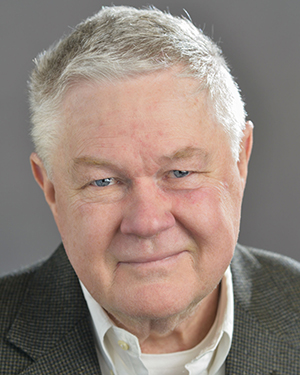Joseph F. Heyse, a respected and influential leader in biopharmaceutical statistics, passed away May 31, 2019. He was 67.
Joe Heyse joined Merck & Co., Inc., in 1976 as a statistician supporting preclinical research and immediately began to develop statistical methods that subsequently became industry standards. In 1987, Joe began supporting clinical pharmaceutical research, providing technical oversight for health economics studies to support the marketing of Merck products. In 1990, he was named the director of a newly established department of health economic statistics. Three years later, Joe assumed responsibility for the clinical biostatistics group at Merck’s Pennsylvania site—including vaccine biostatistics, which was undergoing unprecedented growth. His impact on human health in this role is best summarized by Senior Vice President of Medical Affairs Eliav Barr, who said, “Joe led the group in an era of extraordinary challenges and productivity at Merck. At that time, Merck developed vaccines against rotavirus, a leading cause of infant morbidity and mortality; human papilloma virus, which causes most cases of cervical, genital, and head/neck cancer; and varicella zoster virus, which causes chickenpox in children and often debilitating herpes zoster in adults. Each of these programs required novel, large, complicated studies to address key efficacy and safety questions. Joe’s innovative spirit, keen understanding of clinical research and the underlying disease, deep fount of statistics knowledge, and can-do attitude was instrumental in the success of these studies and the subsequent availability of these vaccines. In short, his work was instrumental to the availability of vaccines that have saved hundreds of thousands of lives and prevented untold misery.”
In 2009, Joe transitioned to the head of the early development statistics group at Merck, and most recently, he was in his fifth year as a scientific associate vice president and head of the biostatistics methodology research group, which provides statistical support to research design, analysis, and reporting relating to product development through the application of existing and innovative statistical methods.
Throughout his career, Joe published books and peer-reviewed journal papers extensively. One of his early mentors, John Tukey, noted that Joe was among the most creative statisticians he ever met.
Joe earned his MS in statistics from Villanova University in 1975 and an MBA in economics from Temple University in 1979. He was selected to participate in the Merck Research Laboratories Doctoral Program in 1984 and earned his PhD in statistics from Temple University the following year. He was a Fellow of ASA and the American Association for the Advancement of Science. Joe was the founding editor of Statistics in Biopharmaceutical Research and editor of Statistical Methods in Medical Research. Joe also served on doctoral dissertation advisory committees at Temple University and the University of Maryland Baltimore County (UMBC). “I still remember his encouraging words and strong support to junior researchers,” wrote Yvonne Huang, a professor of statistics at UMBC. She described him as “an inspiring leader to work with and a role model for us to follow.”
In his 42 years at Merck, Joe had an extraordinary impact on human health. “Joe not only directly contributed to the successful development of dozens of pharmaceutical products, but he personally and proudly developed, mentored, coached, and collaborated with hundreds of statisticians who have, in turn, become successful drug and vaccine developers and leaders in their profession,” said Lisa Lupinacci, associate vice president of late development statistics at Merck.
Amy Gillespie, Merck’s associate vice president for statistical programming, said, “Joe was indeed the catalyst for my career at Merck, [and] his encouragement and council for so many years have directly contributed to my professional and personal achievements. I will certainly miss Joe’s generosity, coaching, inspirational stories, candor, integrity, wisdom, and humor.”
Keaven Anderson, a distinguished scientist at Merck, recalled his interactions with Joe by noting, “His thinking always drew us into a future vision that we could not imagine on our own! I have so much to thank him for.”
Joe will be remembered as a humble and kind person, who was quicker to give credit than accept it and was most willing to share his time and talents to help mentor others along the way.
Joe will be dearly missed by his wife, Lil; their daughters, Angelina and Gabby; and his many friends and colleagues at Merck and in the biopharmaceutical statistics community around the world.
—
Written by Raymond Bain, Merck & Co., Inc.
[Edited from a version in Amstat News]

Comments on “Obituary: Joseph F. Heyse, 1952–2019”